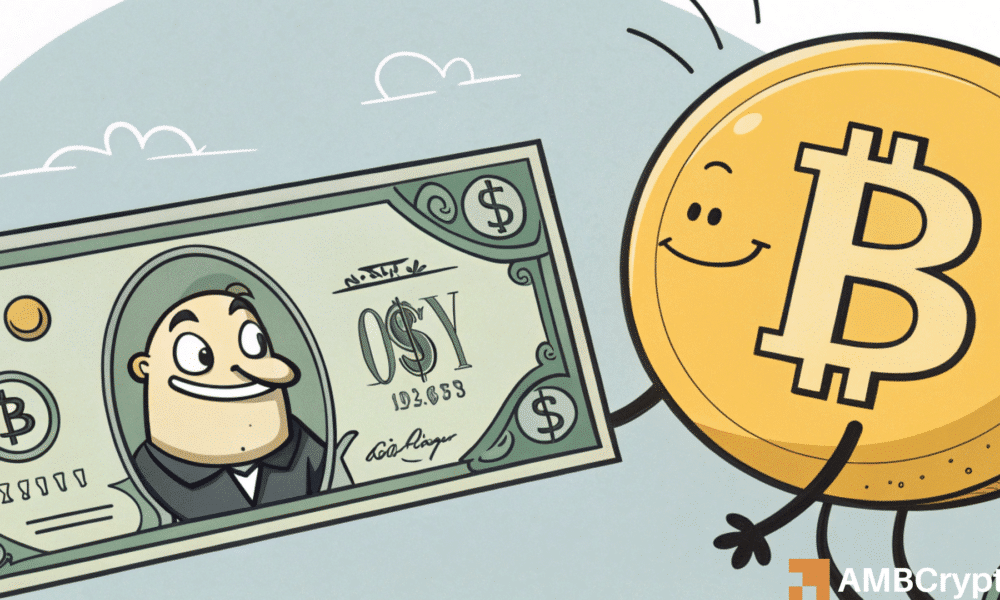Fred Krueger’s Perspective: Why Bitcoin is a Strong Defense Against Inflation
Entrepreneur and Bitcoin advocate, Fred Krueger, recently discussed the impact of inflation and rising living expenses in a series of posts on X (formerly Twitter) on December 30.
Krueger delved into how inflation has eroded the ability to purchase goods over the last five decades and suggested that Bitcoin [BTC] could serve as a viable strategy for safeguarding wealth in the long run.
Escalating Expenses Surpassing Income Growth
Highlighting the substantial surge in the costs of necessities and services since 1971, Krueger pointed out that the price of a gallon of gas surged from $0.36 to $3.00 and a slice of New York pizza escalated from $0.25 to $5.00.
Education expenses, such as tuition fees at Stanford University, saw a significant rise, jumping from $2,400 annually to $66,000—a twenty-six-fold increase.
However, despite these cost hikes, wage increments have not matched the pace. While the federal minimum wage rose from $1.60 to $7.25, representing only a fourfold increase, salaries in fields like engineering, law, and aviation grew by seven to nine times.
Even in professions like investment banking, where starting salaries leaped by 15 times, the growth has failed to keep up with the 10-20x surge in living expenses.
The Unequal Impact of Inflation
According to Krueger, the mounting expenses have disproportionately burdened the lower 50% of earners, who find it challenging to match the growing financial demands.
While the top 1% of earners have enjoyed considerable benefits from the uptrend in asset values, the majority have struggled to keep pace with the economic changes.
Krueger pointed out that this disparity extends beyond the United States, affecting Europe as well due to sluggish wage growth juxtaposed with escalating costs.
Bitcoin: A Shield Against Financial Inflation Risks
Proposing Bitcoin as a potential remedy to combat inflation and safeguard purchasing power, Krueger compared it to conventional inflation hedges such as gold and the S&P 500, both of which exhibited strong growth over the last five decades.
While gold’s value surged from $35 per ounce to $2,600 and the S&P 500 escalated from $100 to $6,000, Krueger expressed optimism about Bitcoin’s future performance, citing its decentralized structure and limited availability as advantages over traditional assets.
“Bitcoin provides a superior defense against inflation,” Krueger asserted.
A Modern Era of Wealth Preservation
While acknowledging gold’s enduring role as a store of value throughout history, Krueger positioned Bitcoin as a contemporary alternative, well-suited to navigate the challenges posed by inflation in today’s economic landscape.
Despite Bitcoin’s relatively brief history, having emerged in 2009, Krueger believes its unique characteristics make it a suitable candidate for addressing the inflation challenges prevalent in the current financial environment.

